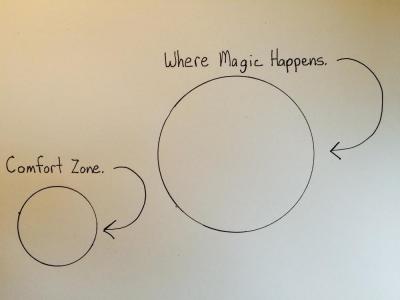Personal and Professional Development
Conflict is an energy that has not yet found its place within the system that created it.
Conflict signals that something important is emerging, bringing new information that is vital to our ability to understand diversity and complexity and that is needed for our growth as individuals, groups and organizations.
Services
- Training: Capacity building for organizations, groups and individuals to effectively and constructively engage with conflict.
- Leadership Coaching: One-on-one, individually tailored support for staff, managers, supervisors, team leaders, department heads and CEO’s.
- Facilitation: Facilitating active tensions and conflicts with individuals, organizations and groups.
Getting Started
The first step in this consulting process is a discussion with David to clarify what the organizational needs are. Each consulting approach is designed in collaboration to precisely meet the needs of the organizational system.
What is a process-oriented approach?
David holds an M.A. in Process Oriented Facilitation and Conflict Studies from the Processwork Institute in Portland, USA. Process Oriented Psychology (“processwork”) is a multi-disciplinary theory and practice for supporting individual and collective change. It is an awareness-based practice that approaches each change process and conflict with respect and curiosity. Informed by quantum physics, processwork holds the belief that solutions to conflicts are contained within the conflict itself. Through what processwork calls, deep democracy, process facilitators work to invite, include and acknowledge all voices and viewpoints to unfold all possible layers of conflicts. This also includes noting and bringing awareness to unintentional or unconscious communication signals, as we all conscious ones. Process facilitation supports people and groups to meet and explore the close proximity to unfamiliar or confronting territory that conflict brings.

Conflict brings us to the limits of how we know ourselves, each other and the larger world. The felt sense of contact with less familiar or unknown experiences is called an edge. Encountering our edges within a conflict brings us access to new information and insights that help individuals and groups to make shifts in awareness, relationship, understanding and power dynamics. The process facilitator is most valuable in just such moments as this ‘sitting in the fire’ at our edges is precisely the most difficult aspect of the conflict experience.
What is the goal of a process-oriented approach to conflict?
Finding sustainable and effective solutions to problems and conflicts is the goal. The process facilitator works to slow down conflict, and support all sides to not say less, but actually to say more, to bring out the fullness of the tensions. Because conflict typically occurs with speed and reduced awareness, the act of slowing and expressing more fully inevitably introduces new information to the conflict. Inside of fixed sides, the slowing and expanding process helps us notice that their is also some diversity within each side. And further still, that their is very often also diversity of feeling and perspecitive within individuals that make up a 'side'. This changes things. New information grabs our attention, and changes how we see our conflict, relationships shift and change, and there is a sense of not being stuck in fixed polarity, which is relieving. Now we are more fluid, movement and possibility is present again, amid a pervasive feeling of more openness and a fuller sense of our diversity. This is the phase where we can see ourselves in each other, even when we don't fully agree. What I've found in my conflict work is that more often than not, we don't need a new policy or protocol, or to make new agreements. What we need in conflict most of all, is to feel differently about each other.
Who is a process-oriented approach for?
It is for those who are open to working with conflict as a challenging ally and wanting to develop their own capacity to become more conflict effective in their organizations and lives. A process-oriented approach to conflict is not for those seeking quick fixes, prescribed outcomes, or externally imposed solutions.
Clients
- Aboriginal Head Start
- Alberta Association of Immigrant Serving Agencies
- BC Council for International Cooperation
- BC School Districts #8, #39, #42, #61
- Big Brothers of Greater Vancouver
- Capilano University - Global Stewardship Program
- City of Victoria
- Citystudio - Vancouver
- Cohousing: Nelson, Saanich, Sooke, Vancouver
- Embark Sustainability SFU
- Fraser Health Authority - BC
- FWD50 Conference
- House of I - China
- IBM China
- International School of the Americas - Costa Rica
- I/O Engineering and Design, BC
- Kiaro Cannabis
- Kootenay Co-op, Nelson, BC
- Leadership Development program - The Banff Centre for the Arts
- Maslow Centre for Executive Leadership
- Next Up Leadership - Calgary, Saskatoon, Vancouver
- Open Media
- Portland Hotel Society - Vancouver
- RADIUS Social Innovation Lab
- SHIFT Collaborative
- Simon Fraser University - Undergraduate Semester in Dialogue
- Surrey Teachers Association
- The Family Centre - Lethbridge, Alberta
- The Haven - BC
- Vancouver Coastal Health Authority
- Vancouver Indigenous Media Arts Festival

